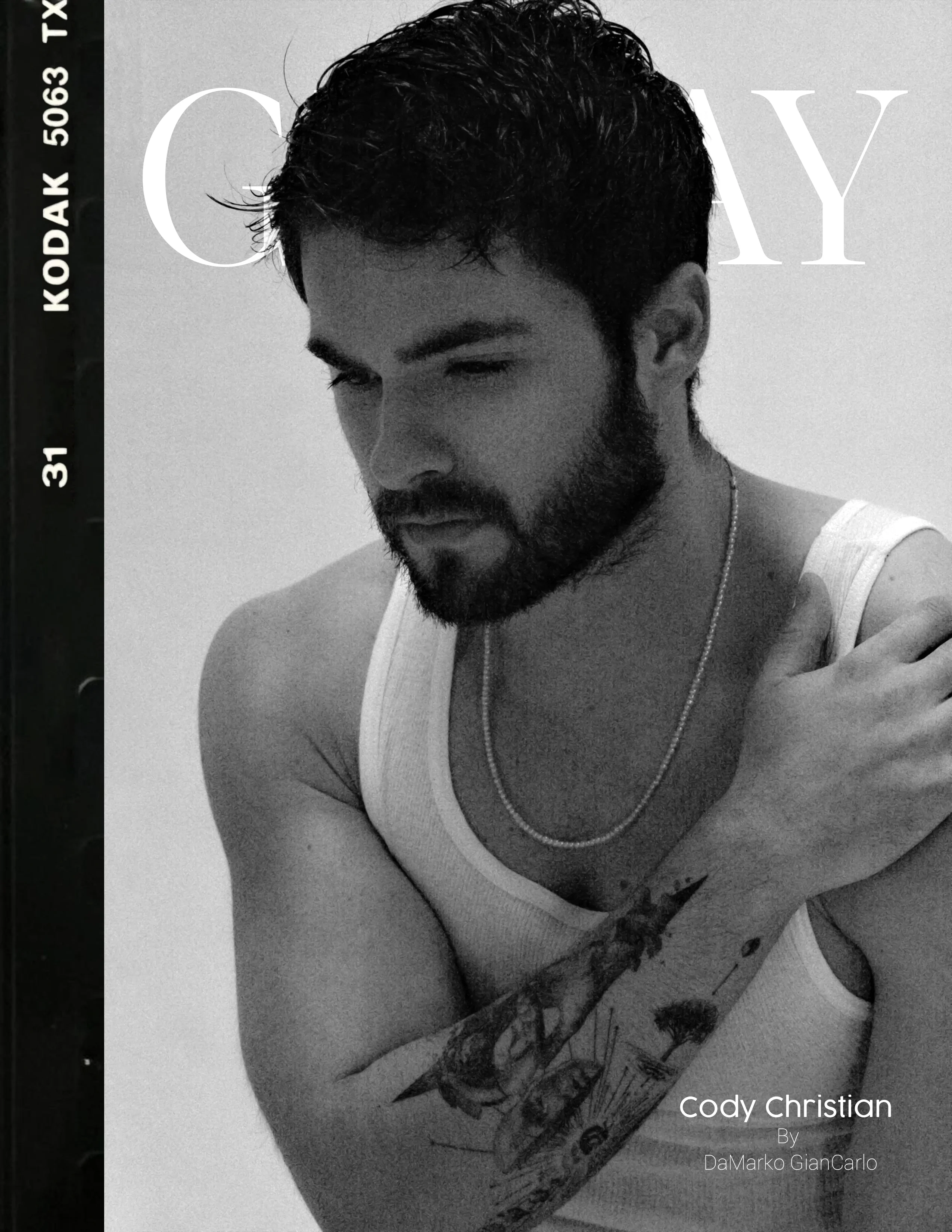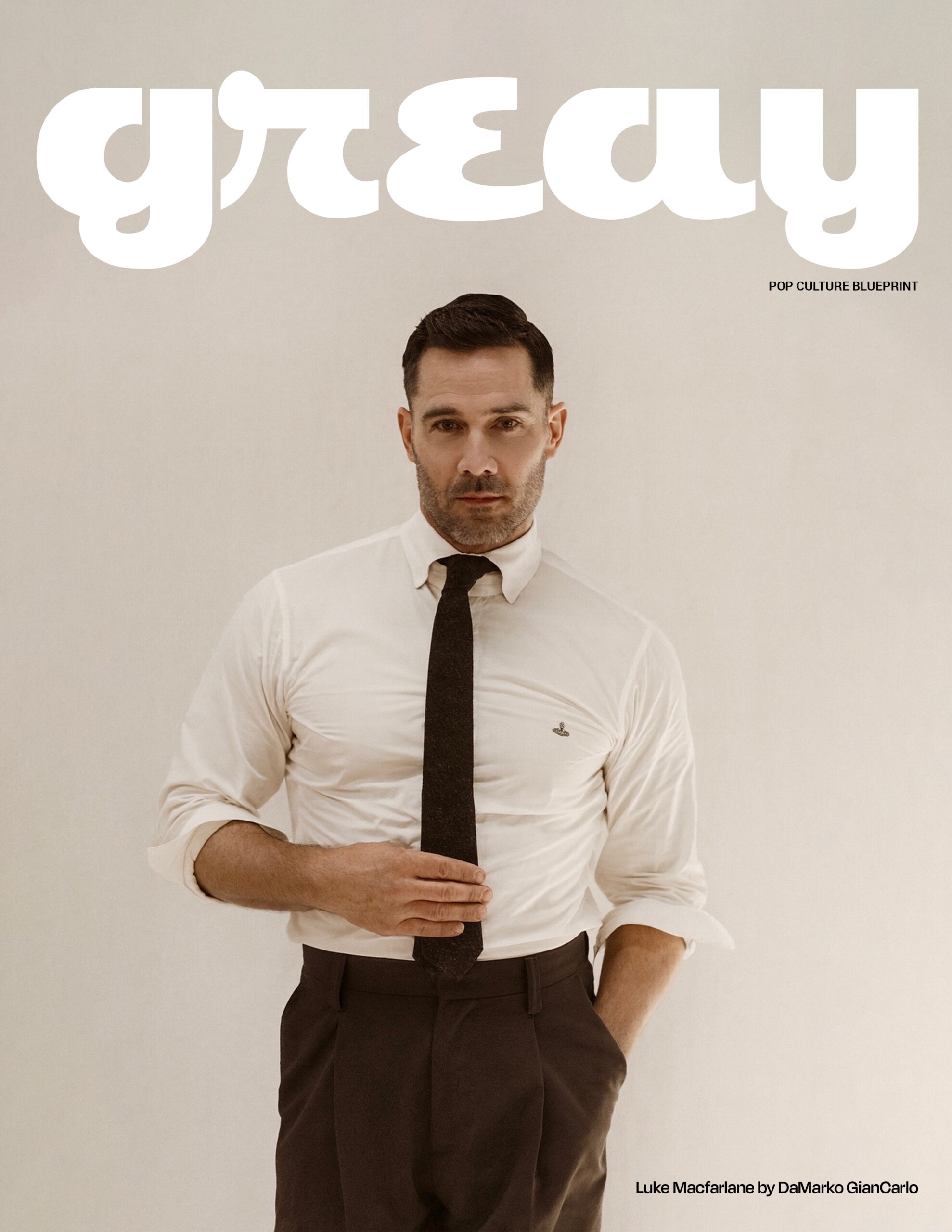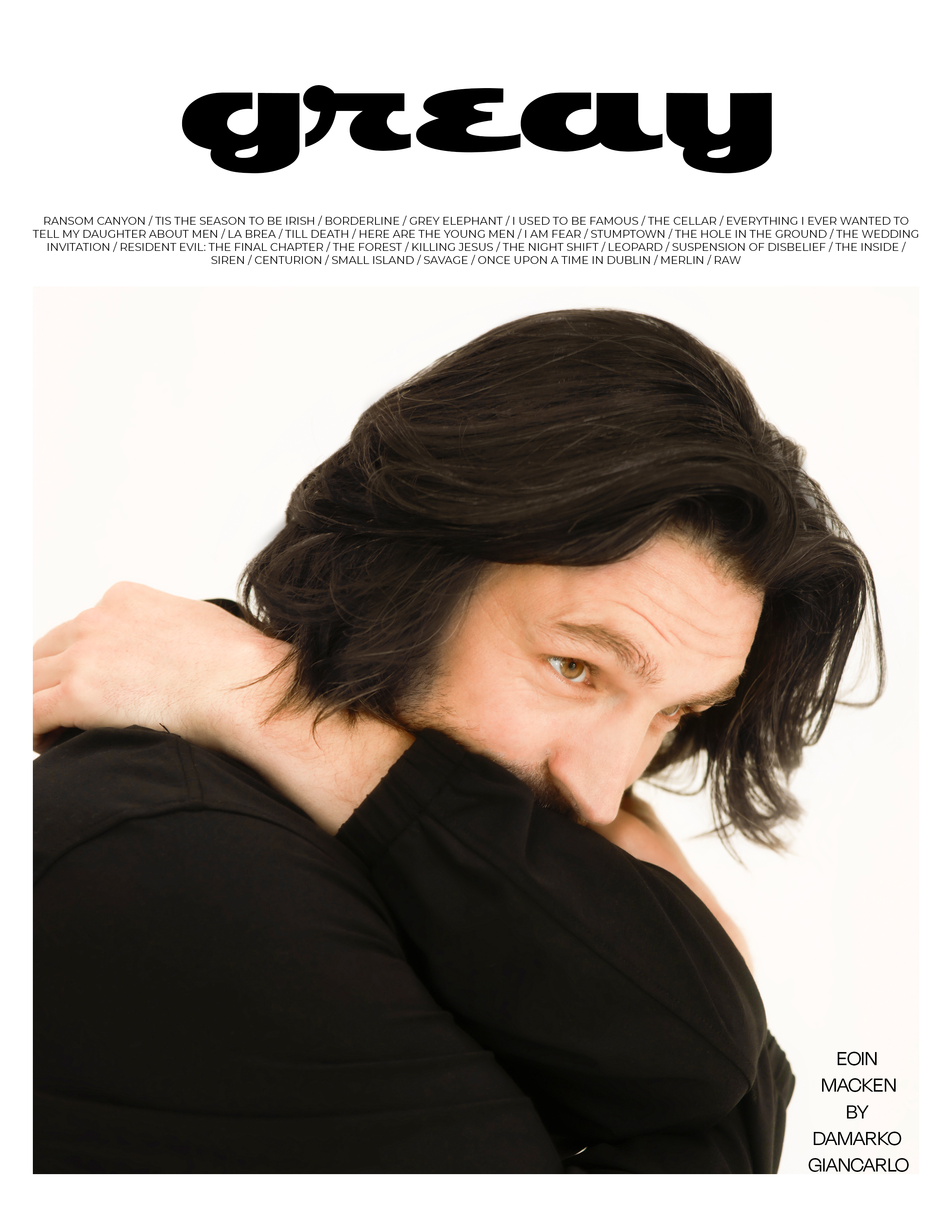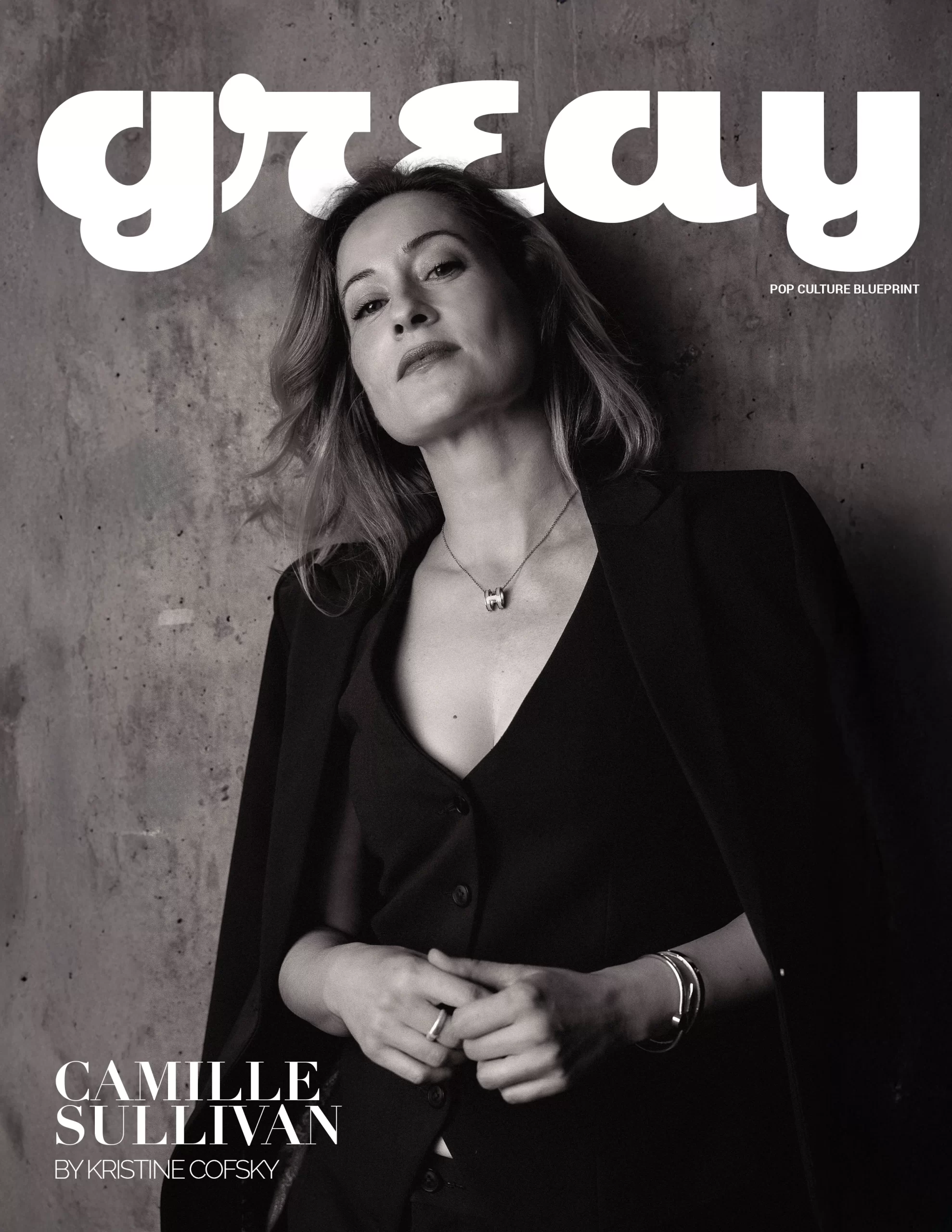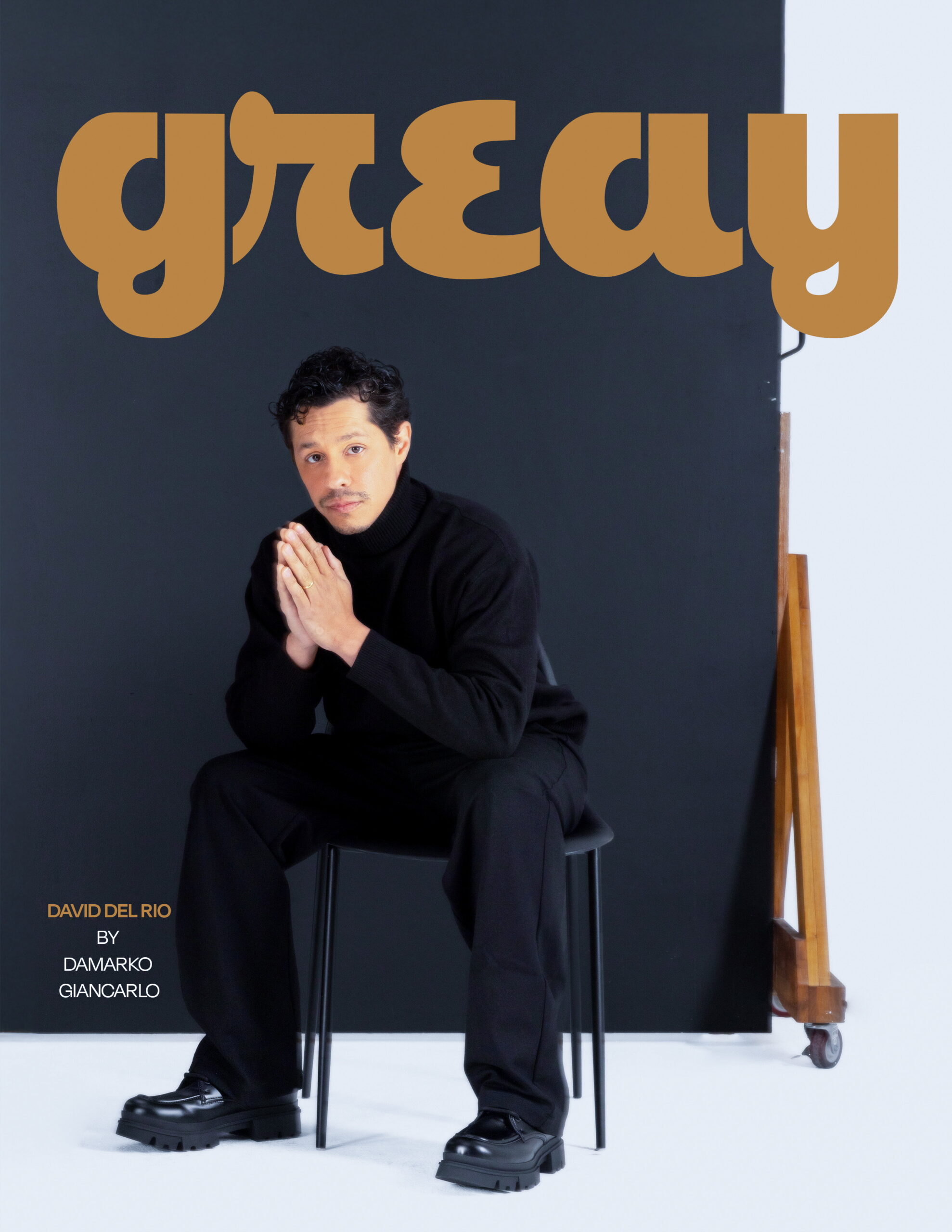
David Del Rio from Broadway to Courtroom

Photographer DaMarko GianCarlo
What do you love about living in Texas?
I live in Austin, Tx, currently. It’s a thriving, embraceable, and celebratory city. There’s a rhythmic pulse to it and it’s very inviting to those who visit or who want to make a life there. With tech, farming, restaurants, fashion or entertainment, it houses many industries, so there’s something for everyone. My wife and I have our first home there, it’s a very special place and we looking forward to exploring more.
Did you think you’d grow up to be a doctor or was it always acting? Craniomandibular Disorder is hard to say… did it help you in your acting?
I don’t know in what context or relevance Craniomandibular Disorder has anything to do with my acting, however I hear it’s painful. The only other job I ever wanted to do was a police detective, that investigative process to solve a mystery. I put that same energy into getting to know my characters and exploring their life and why they make the decisions they make. Playing Billy Martinez on Matlock, I already feel like I’m playing a detective. Wearing a suit and solving clues to come up with a strong case, it’s that same type of environment I wanted to be around when I was kid.

Photographer Jayson Echo
How did Miami shape your view on performance?
Miami is my home, it’s where I trained as an actor and back then there were so many opportunities for young hungry performers to have experience in getting in front of an audience and showing your work. Back when I was in high school, Miami had so many theatre magnet programs, you would think the city was growing to be the next New York City when it comes to building artists. I don’t know where Miami stands now on the arts… I hope it’s close to how it was when I lived there, because Miami influenced me greatly in that aspect. I went to an arts high school, New World School of the Arts, where they nurtured your exploration of your chosen craft. My teacher James Randolph was a huge influence when he would teach the history and relevance of theatre and film, the commitment to the process of acting, and actual techniques that I still use as the basis of my prep work today. James Randolph taught me how to breathe, actually. I don’t remember taking a breath from my chest since high school, all from the diaphragm. Breathing that way has saved my ass in many jobs. I think he really shaped my view on performance by breaking down the responsibility of the actual work. The artistic values I still carry with me today I owe to him.
Your career spans film, television, and theater. How do you approach preparing for roles in each of these mediums, and does your process differ depending on the platform?
The medium rarely is part of the equation when it comes to the prep work. In general, I think it’s more physical and dialogue prep, how to keep your body and voice in shape for long shoot days or eight shows a week. Without talking too much about process, the homework does change from project to project because it’s dependent on the speed of the production and the vision of the Showrunner or Director. My bosses expectations, as well as the ideas from all the department heads, presents an overall plan on how to execute. That mindset and rule has always worked for me, anyway.
You’ve worked on both big productions and indie projects. What do you find most rewarding about each, and how do they challenge you as an actor?
The reward of this industry are the people, the crew. There’s a daily appreciation for everyone’s contribution, so you grow a love for your team and their life stories that they bring to their work. Particularly on Matlock, it’s a privilege to collaborate with them and to get to know a variety of special people and storytellers. To be honest, the challenge always comes from within. I always find that as long as I’m prepared and collaborative, there is no difference between a big production or an indie project, but my own insecurities are always tested and analyzed no matter what type of production I’m in. It takes a long time to get over the fear of “am I delivering to the director or showrunner’s vision?” or “am I being as present as I need to be?.” Once I’m over that fear, then I surrender to the process and it becomes a beautiful ride. Being a dad has made that fear go away quicker and thank God because my first job while raising my daughter was Matlock, so she quickly became that lucky star. However, I don’t think I’ll ever get over that challenge, it exists and that’s okay.
As someone who’s also stepped into the director’s role, how has directing influenced your approach to acting?
I don’t know, I haven’t thought about the influence one hat gives the other, I just know that it does. When I’m directing an actor and I’m watching their performance on the monitor or stage, I feel like I’m up there acting. When I’m acting and I’m taking the director’s notes, I try to meet them at their language and so I sometimes feel like I’m directing myself. The energy I feel when I’m searching for truth feels the same to me, no matter what hat I’m wearing.


What kind of roles do you find most fulfilling, and are there any genres or character types you’re eager to explore in the future?
To play any character that has to go through a situation that tests everything they believe in, those are the arcs and depths I find fulfilling. I can’t control any auditions or offers that come into my inbox, so I don’t look for anything, I just leave it to my higher power to do the work. I’ve always believed my next job finds me at where I’m at.
How do you maintain authenticity in your performances, especially when playing characters who may be very different from yourself?
Listening is the exercise, listening is the essence of the connection between characters. Leigh Kilton Smith is a brilliant coach, she introduced me to the idea that characters listen with the intent to understand. So, when I’m really listening, I don’t feel like I’m acting. I feel like there’s a blank canvas in my gut, my eyes, my brain and my ears waiting to have a variety of colors splashed on it. My feeling when I receive the information dictates how my character responds. So you want to constantly try to recreate that cycle of being present. It’s always hard and challenging to be in that listening state for every take, so trying to maintain and put in the effort to get there constantly is the intentional work I try to achieve.
How do you balance the technical aspects of acting (like hitting marks or continuity) with staying emotionally present in a scene?
I like your questions, because it gives me an opportunity to talk about my trainers and influences. Richard Omar is another mentor of mine and my college teacher. He used to have us be completely still and focus on our periphery, to see past our normal scope. No joke, my vision completely changed and I became more alert when I would do scenes in college and ever since then. Our classroom was set up with three cameras, lights, someone holding a boom mic, and a monitor for the entire class to see, so it was greatly technical. Richard’s way of communicating the marriage between our artistry and what matters on the screen got me to really concentrate on how to be a present teammate with every crew I’ve worked with since the beginning of my career. He taught me how important it was to be a strong employee first, good actor second, and being a strong employee is to make the shot work first and foremost. To be aware of the camera and mic placement, landing on my mark while still engaging in the scene, continuity, all that balance I learned in college because of Richard. It’s a different process day to day because the scene is different, however balancing the technical and the truth of the scene is the job.
What have you learned being on the Matlock set? How has it been working with Kathy Bates?
Fear and insecurity at work tends to be because of my own ego. So it’s gotten easier to recognize that, drop it and focus on chasing that moment to moment. When you’re around the stamina, the creative flow and the filmography from the crew, the creative team, the producers, the cast, Jennie, Kathy… it racks your nerves all the way up to eleven, however it can instantly put me into the state of curiosity. When I drop my fear, my own BS, curiosity grows, then I try to ride the curiosity until the next time I allow my fear to takeover. I’ve learned that it will be a constant cycle that I’ve accepted. Kathy’s constantly writing in her script, I’ve never seen anything like it. Kathy would circle an action as simple as “Matty looks over to the paper bag” and take up a page and half writing about what that paper bag means to her character. It’s fed into my discovery work and I hadn’t worked like that in a long time, so she brings the actor grunt work out of you. I love watching her when she’s silent, everyone does, she has a way of conveying to different stories at the same time with a single raise of the eyebrow. That’s her living off what she writes on her script and to be able to witness her own homework come to life, there is no greater privilege.

Did you watch Matlock growing up? What else did you watch that influenced you?
I didn’t watch Matlock, so I don’t have a lot to say about that.
An early influence was Barry Levinson’s “Wag the Dog.” As a kid, I knew who De Niro was, however I asked my mom who was that other guy? She told me it was Captain Hook… it was Dustin Hoffman. I couldn’t believe those two characters were the same people. The way those two vibed was so beautiful. Glengarry Glenn Ross, One Flew Over the Cuckoo’s Nest, House, The West Wing, Liar Liar, all those pieces have a special place in my development as an actor. I always got my grandpa to thank for introducing me to Casino and Silence of the Lambs when I was about eight years old. The love for pursuing the craft started there.
You’ve worked with some powerhouses in the past, who would you like to work with again?
Tommy Kail, he’s just a cool, calm, and collected genius. I’ve worked with him twice and we had a blast both times. I really admire his stage and film work, but he knows that.
Who haven’t you worked with that you would in the future?
It’s hard to say since I’ve been spoiled with working with Kathy. I’ll answer it another way, I’ve admired Steve Carell and Jason Bateman for long time. I steal from them all the time.

What would be your favorite musical to do on Broadway or in a movie?
I think it was off-broadway, however Andrew Lippa’s “The Wild Party.”
Who would you cast, yourself included?
If I had the chance to direct this piece, I would. I have so many ideas on how to make it a solid adaptation for the screen. So the cast I’ll have to keep to myself. However, I definitely am not in the cast.

So many well casted, brilliantly written shows have failed. What makes Matlock different?
Jennie Urman didn’t only write a fresh take on an intellectual property, she rebranded what it’s like to be a reboot. She redefined the format. That’s why Matlock is different and resonating with the amazing fans.
What would you like to see happen for Billy next season?
Billy Martinez hits all the cylinder’s of the type of role I’ve always wanted to play. We are introduced to him as a guy who wears his heart on his sleeve in an industry that is cutthroat because if you don’t have a high, lucrative victory, you don’t survive. The people around him, as Matty Matlock said in episode 1, “need to make it rain.” So he’s trying to make his way up, however he does want to make it “people first, profit second.” He then goes through this arc of being influenced by the environment around him and he has to make adjustments. So I think Billy would have to dig deeper in rising to the top, however how he will is up to my brilliant Showrunner.

How do you navigate the challenges of the entertainment industry, and what keeps you motivated during tougher times?
The entertainment industry is a wild wave of constant change, especially now. But the industry is an outside entity that has nothing to do with me, so I try to navigate by not giving it too much attention when I’m not working. I try to concentrate on how to better my life in between jobs, no matter how long that time gap might be. To live life and to disconnect from chasing the job and connect with the world around me. As Leigh Kilton-Smith would say “Live life, then you bring that life into the room.” My wife, kids, and the home we’ve built keeps me motivated. My mindset has always been not “if” but “when” will the next job start, that always seemed to help me survive.
What advice would you give to aspiring actors who want to build a versatile career across different genres and mediums?
I’d say that the “no” we receive from auditions is part of our journey, not the blockade of our journey. Once you realize that getting a “no” is a rule of the game and not something that happens to you and you only, your mindset can stay healthy and you wouldn’t have to feel to quit. Our mindset and training is what helps us survive, so you have to keep your talent engaged and make sure your head is right. Once I accepted the no’s, moved on, the yes’s came in a lot faster.
Grooming Myrlen Monge
Styling The COI Group
Interview kyra Greene
Produced By The COI Group & The Greay Firm


